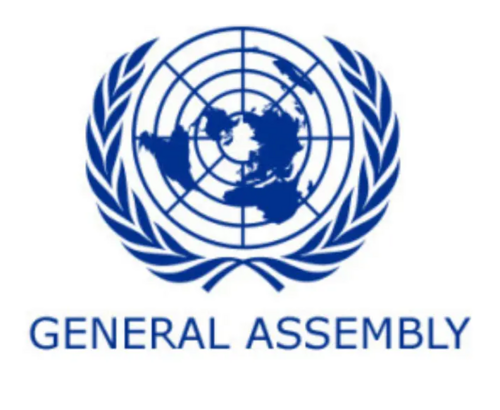UN General Assembly Adopts Landmark Cybercrime Treaty

On Tuesday, the United Nations General Assembly adopted the United Nations Convention against Cybercrime, a significant global treaty designed to enhance international collaboration in combating cybercrime and safeguarding societies from digital threats.
This legally binding treaty is the result of five years of negotiations among UN Member States, incorporating insights from civil society, information security experts, academia, and the private sector.
UN Secretary-General António Guterres hailed the adoption of the Convention as a milestone, marking the first international criminal justice treaty negotiated in over two decades. His spokesperson stated, “This treaty demonstrates multilateralism succeeding during challenging times and reflects the collective will of Member States to promote cooperation in preventing and combating cybercrime.”
The Convention is set to create an unprecedented platform for collaboration in evidence exchange, victim protection, and prevention efforts while ensuring that human rights are upheld online. Guterres urged all States to join and implement the Convention in partnership with relevant stakeholders.
Philémon Yang, President of the General Assembly, emphasized the importance of this new treaty in today’s digital landscape. “We live in a digital world where information and communications technologies hold immense potential for societal development but also pose significant threats from cybercrime,” he stated. “With this Convention, Member States have the tools to enhance international cooperation in preventing and addressing cybercrime.”
The resolution was adopted unanimously by the 193-member General Assembly without a vote. Ghada Waly, Executive Director of the UN Office on Drugs and Crime (UNODC), described the treaty’s adoption as a “major victory” for multilateralism and a crucial step forward in tackling crimes such as online child sexual abuse, sophisticated scams, and money laundering.
The Convention acknowledges the severe risks posed by misuse of information and communications technologies (ICT) that facilitate criminal activities on an unprecedented scale. It aims to protect individuals and societies from various offenses, including terrorism, human trafficking, drug smuggling, and online financial crimes.
The treaty will be formally opened for signature at a ceremony in Hanoi, Vietnam, in 2025 and will come into force 90 days after being ratified by 40 signatories.

